“When we started the COVID-19 initiative, we never anticipated that we would have to include teachers and other people who had jobs in the plan. We thought the lockdown was passing and that people would be allowed to go back to their jobs. But as days went by and there was no sign of easing of lockdown in the country, we started getting calls for help from people who had lost their sources of livelihood,” he says.
Since April when the diocese donated food parcels worth KES.1,200.00 (US$12.00) to the first 90 families, all the while intending to reach 500 families by the end of the COVID-19 pandemic, the project has surpassed its set target and has, in less than three months, reached 720 families of about 8,000 individuals.
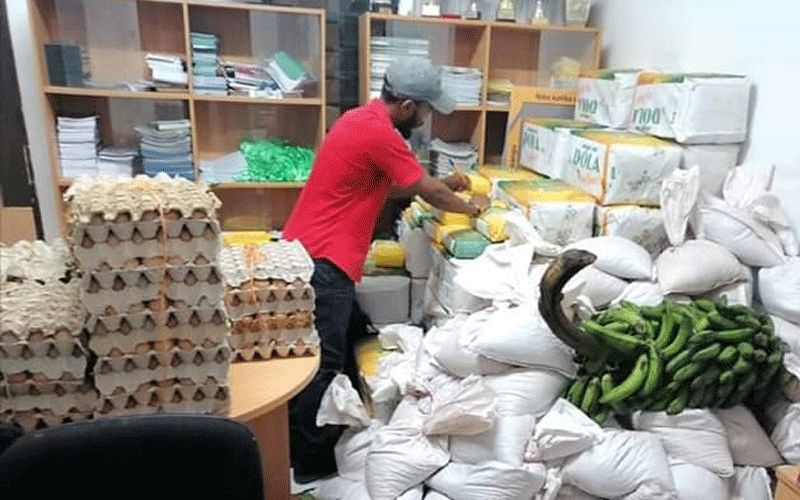
Additionally, it has attracted the support of Pontifical Missionary Societies (PMS) and the Kenya Conference of Catholic Bishops (KCCB), PACIS Insurance Company, Caritas Kenya as well as Karibuni Onlus, an international organization that funds education and health projects in Kenya’s impoverished coastal towns.
The groups have been drawn towards the initiative for its effective and transparent way of operation, the CJPC official says.
(Story continues below)
“Our donors are very impressed at how we manage our project. What sets us apart from other projects is our focus on social accountability more than financial accountability,” Mpuria says and explains that while financial accountability seeks to provide evidence that money has been used, social accountability, on the other hand, seeks to justify whether or not the people helped deserved the help in the first place.
“Helping needy people isn’t a new concept to us. We have done this for years and at the moment, we have information about all needy cases who we categorize according to different vulnerable groups,” he says.
Every Lenten Season, CJPC Malindi creates separate answer booklets apart from those that the relevant KCCB leadership usually provides for teachings in Small Christian Communities (SCCs). Leaders of SCCs fill these booklets with names of their members and include details about their level of income.
“This way, we know who needs our help,” he says and adds, “Today, if we received aid of any kind, we won’t start grappling with lack of information on who needs what. We simply make a call to the Parish Priests who in turn supply us with names of all needy cases within 24 hours. That’s how organized we are.”
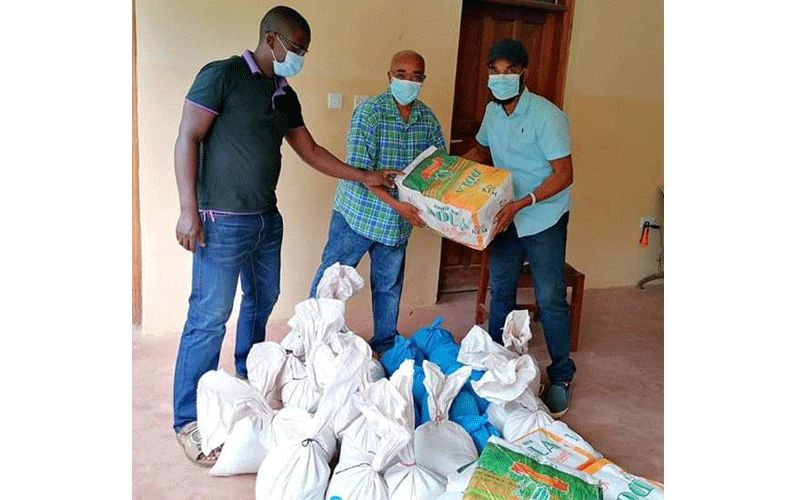 Today, the Catholic Diocese of Malindi is supporting individuals in four categories to survive the effects of COVID-19. These include the vulnerable groups of orphans, widows, HIV/AIDS patients, people living with disabilities and victims of sexual abuse.
Today, the Catholic Diocese of Malindi is supporting individuals in four categories to survive the effects of COVID-19. These include the vulnerable groups of orphans, widows, HIV/AIDS patients, people living with disabilities and victims of sexual abuse.
The other groups include flood victims and girls who cannot afford sanitary towels, people who have lost employment in private schools, tourism, hotels and in other sectors that are not operational during the pandemic.
“Before, we used to distribute sanitary pads to the needy girls in their schools but from the time that schools closed down, we have been trying to reach the girls through community engagement programs because they still need the sanitary materials at home,” says Mpuria.
The vulnerable girls are supported through Project 720, a WhatsApp group the Malindi CJPC leadership initiated to rally for donations of KES.720.00 (US$7.20) to buy a carton of sanitary pads for the girls.
The second category of this help targets the wider population where the diocese supplies liquid hand washing soap in “abandoned” dispensers in public spaces.
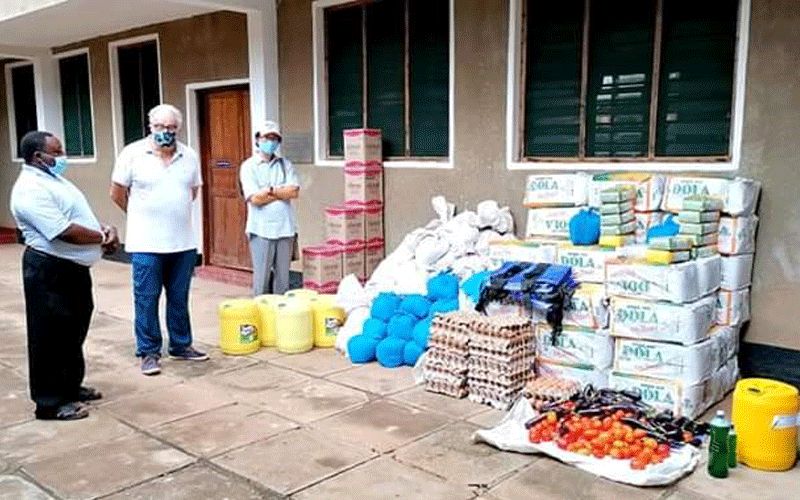 “When COVID-19 was reported in Kenya, the local government acted fast to provide liquid and soap in public places. But it was a one-time thing and the dispensers were abandoned when the soap ran out. We have taken up this project to continue providing hand-washing liquid soap to members of the public,” the Malindi CJPC coordinator says, adding that members of Pope Francis rescue Centre, a support group run by the Diocese for 20 child survivors of sexual abuse, make the soap which the diocese buys and distributes in public places.
“When COVID-19 was reported in Kenya, the local government acted fast to provide liquid and soap in public places. But it was a one-time thing and the dispensers were abandoned when the soap ran out. We have taken up this project to continue providing hand-washing liquid soap to members of the public,” the Malindi CJPC coordinator says, adding that members of Pope Francis rescue Centre, a support group run by the Diocese for 20 child survivors of sexual abuse, make the soap which the diocese buys and distributes in public places.
The final category of help given in the diocese aims to cushion members of the Clergy in parishes that have been worst hit by the pandemic.
“We have been cushioning some of our Priests who in the past relied on tithes and offertory to run Church projects. Since the suspension of public Mass, these Priests have been grappling with lack of funds to run activities of their parishes,” says Mpuria.
The Priests are given funds to pay their utility bills of water and electricity as well as to pay their cooks, security guards and other service providers in their parish premises.
Additionally, nuns who used to teach in private schools are given a stipend from the Diocese’s COVID-19 response kitty.
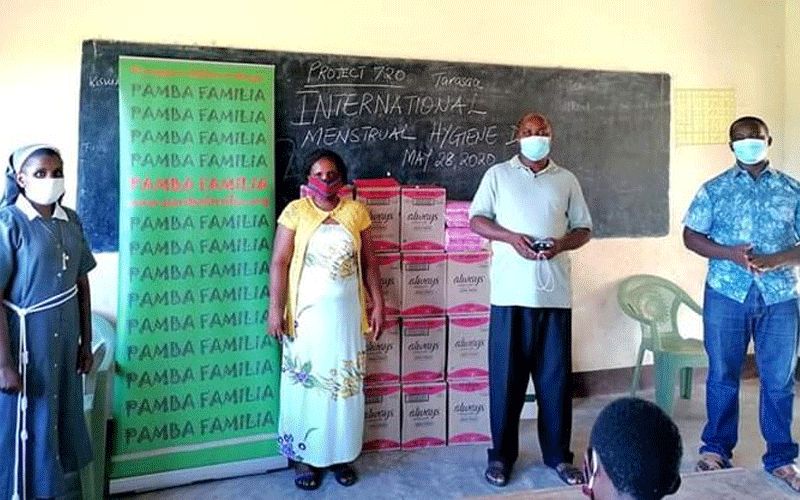
Catholics account for a paltry 10 percent of all the people that have been listed for the Malindi Diocese COVID-19 response initiative which does not segregate on the basis of religious affiliations. A majority of those getting help belong to other denominations.
“As Catholics, we only look at human dignity. Other things don’t matter and that’s why we are not discriminating against anyone that needs help. There were very few Catholics among the teachers who we served today,” says Mpuria, adding that the diocese has in the past made donations to purely Moslem communities in Malindi.
Referencing past notorious terrorists that have targeted non-Muslims on the Kenyan coast, the CJPC official says, “Our relationship with people of other faiths here is very strong. When terrorists attacked Christians in past incidences, we received a lot of support from Muslims.”
With the solid COVID-19 response, the Diocese of Malindi, which is established in one of the most hardship areas in Kenya, has beaten all odds and set itself apart as an example to other dioceses in the East African country.
As a parting shot in the interview with ACI Africa, Mpuria appeals for donations to meet the needs of the growing list of vulnerable cases in Kenya following an extension of lockdown and dusk-to-dawn curfew in the country.
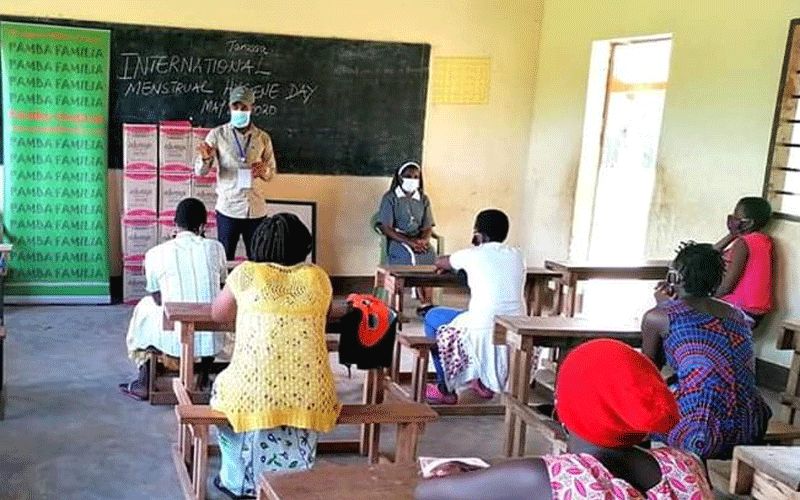
“If there is any organization or individual out there who feels touched to help, kindly do so by sending your donation on our pay bill number,” he says, adding, “We have the most active and consistent COVID-19 plan in all the three counties of Malindi, Kilifi and Lamu and we continue to receive needy cases every day.”
According to the Malindi Diocese CJPC Secretary-General, those who go to the local authorities for help are pointed in the direction of the Catholic Church.
Agnes Aineah is a Kenyan journalist with a background in digital and newspaper reporting. She holds a Master of Arts in Digital Journalism from the Aga Khan University, Graduate School of Media and Communications and a Bachelor's Degree in Linguistics, Media and Communications from Kenya's Moi University. Agnes currently serves as a journalist for ACI Africa.



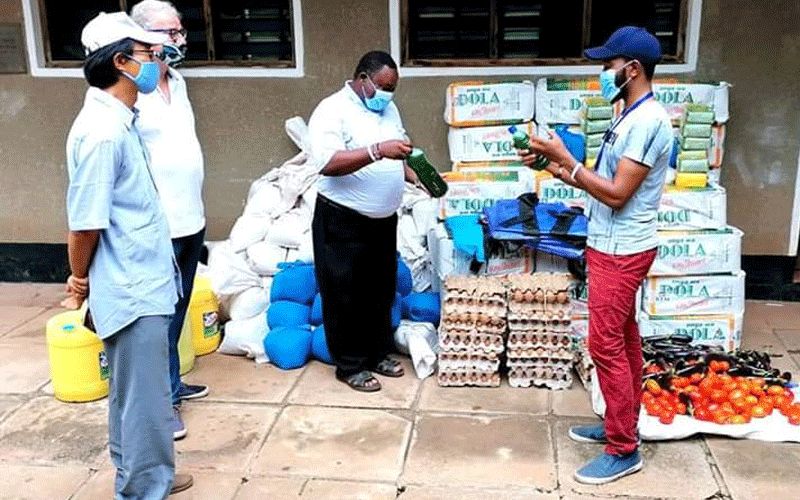
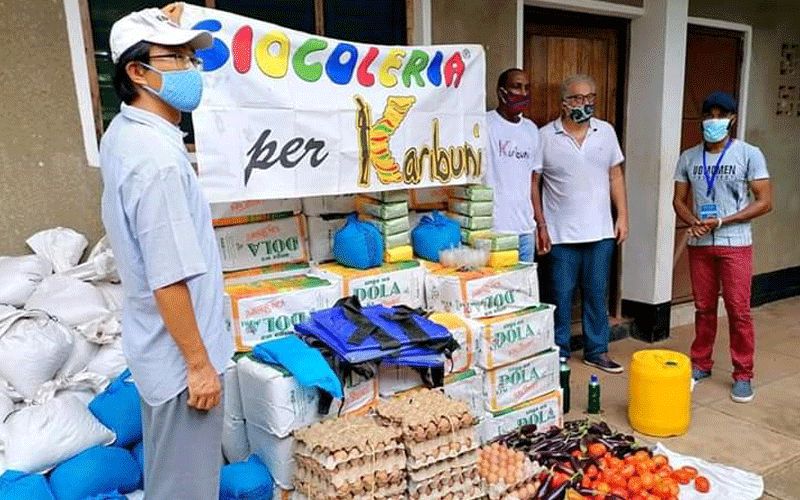

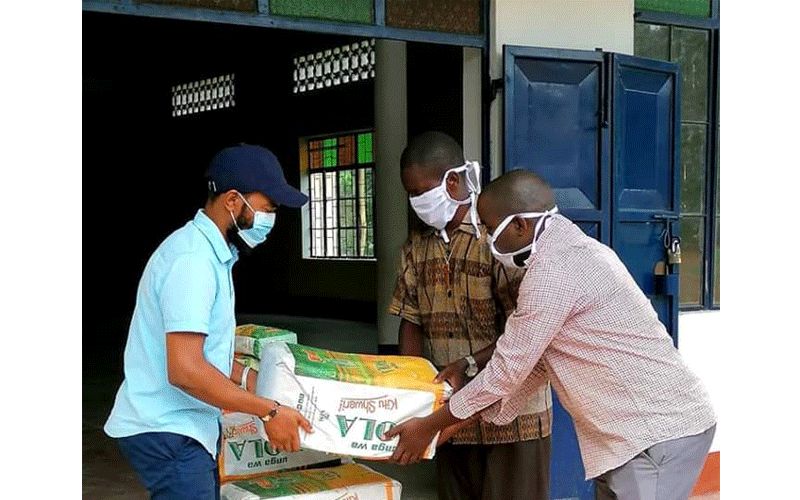

 Today, the Catholic Diocese of Malindi is supporting individuals in four categories to survive the effects of COVID-19. These include the vulnerable groups of orphans, widows, HIV/AIDS patients, people living with disabilities and victims of sexual abuse.
Today, the Catholic Diocese of Malindi is supporting individuals in four categories to survive the effects of COVID-19. These include the vulnerable groups of orphans, widows, HIV/AIDS patients, people living with disabilities and victims of sexual abuse. “When COVID-19 was reported in Kenya, the local government acted fast to provide liquid and soap in public places. But it was a one-time thing and the dispensers were abandoned when the soap ran out. We have taken up this project to continue providing hand-washing liquid soap to members of the public,” the Malindi CJPC coordinator says, adding that members of Pope Francis rescue Centre, a support group run by the Diocese for 20 child survivors of sexual abuse, make the soap which the diocese buys and distributes in public places.
“When COVID-19 was reported in Kenya, the local government acted fast to provide liquid and soap in public places. But it was a one-time thing and the dispensers were abandoned when the soap ran out. We have taken up this project to continue providing hand-washing liquid soap to members of the public,” the Malindi CJPC coordinator says, adding that members of Pope Francis rescue Centre, a support group run by the Diocese for 20 child survivors of sexual abuse, make the soap which the diocese buys and distributes in public places.




